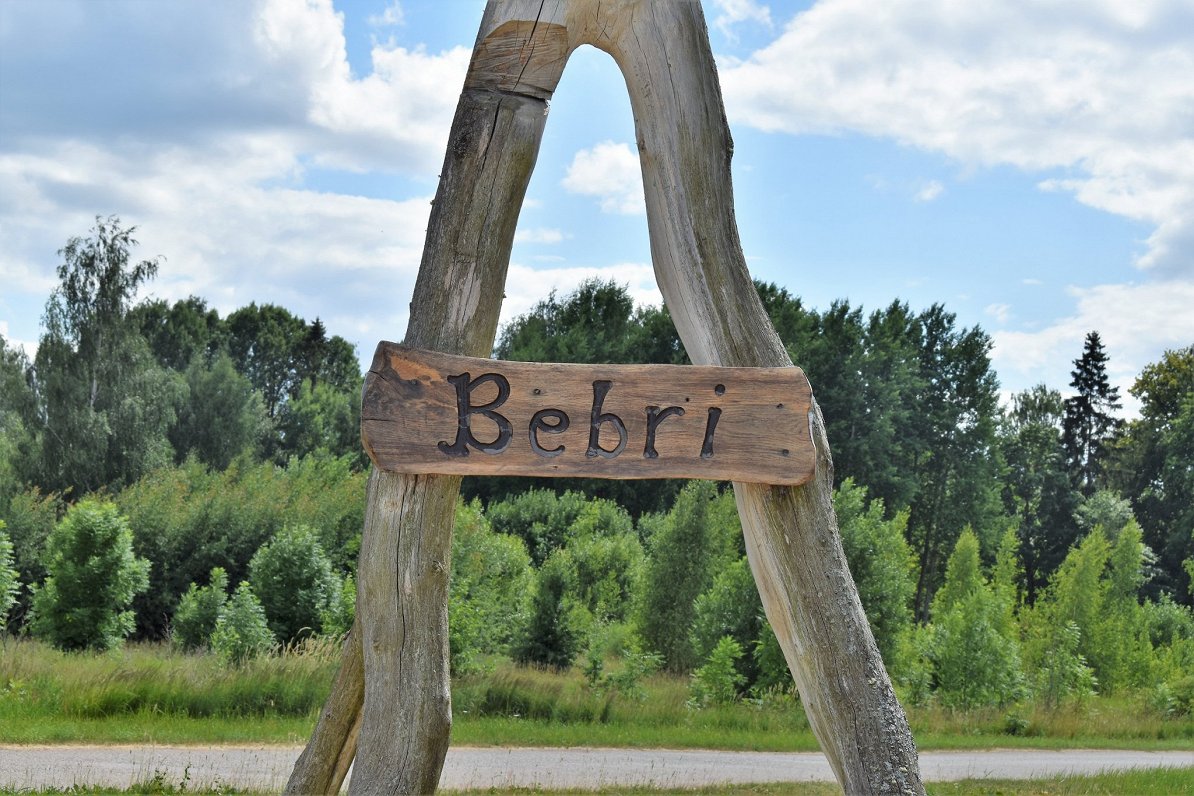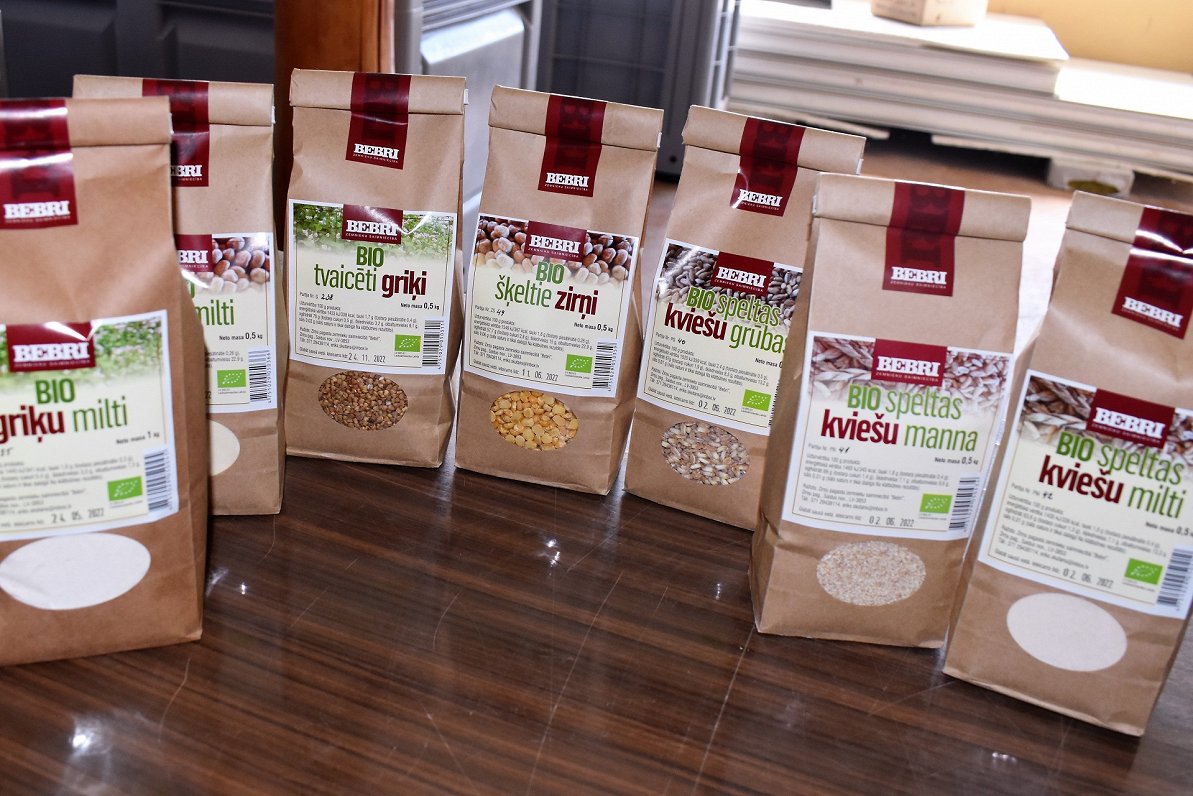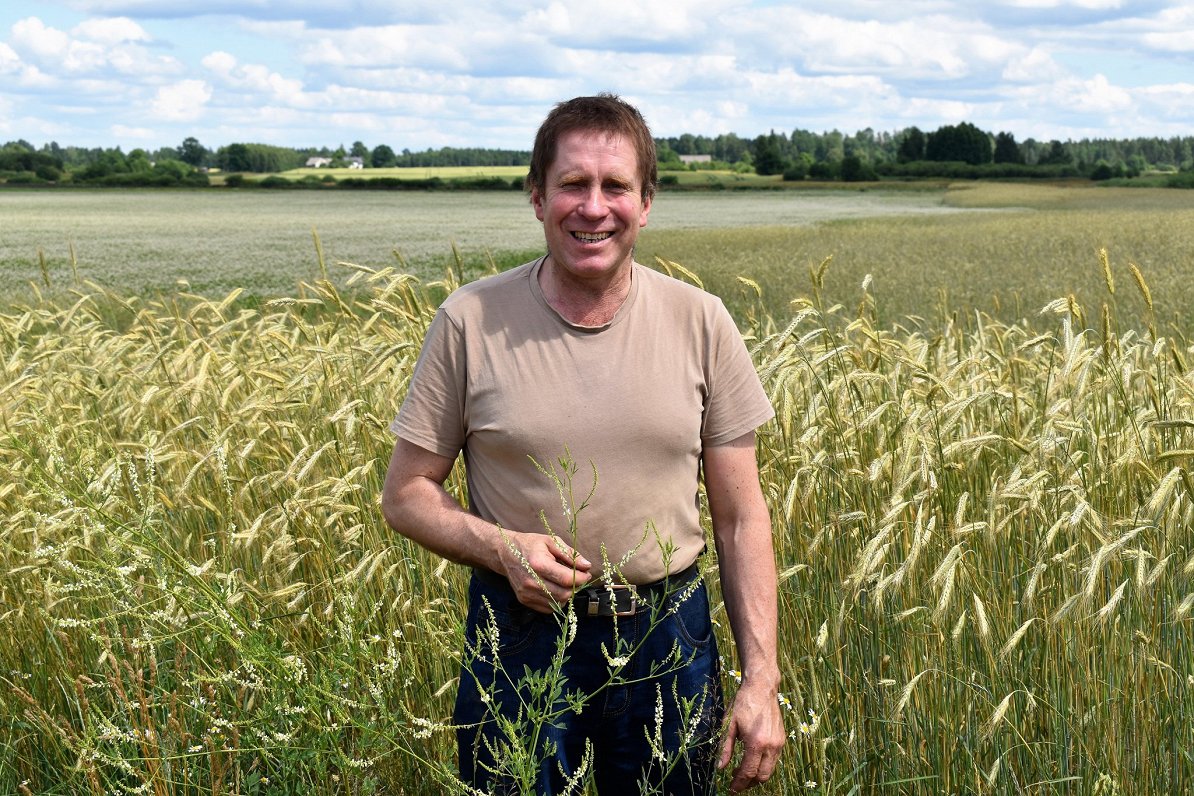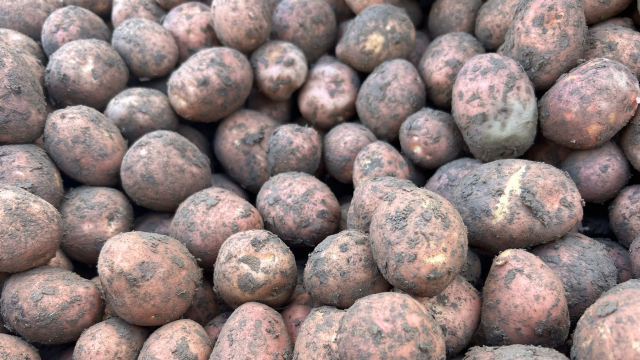Sunburned and happily barefoot on a glorious summer’s day, Ēriks Šķutāns looks every bit the farmer at his property “Bebri” near Saldus, 115 km west of Riga. And the hearty frikadeļu (meatball) soup and homemade buckwheat cookies served by his wife Mārīte fill the stomach with bucolic delight.
But this couple and their four kids differ from their neighbors in important ways. Over a decade ago, the family decided to completely forgo chemical pesticides and fertilisers on their 300 hectares, becoming one of the country’s largest purely organic grain growers.
According to Ēriks, it’s a decision that has brought plenty of challenges, but also rich rewards.
Weeds mean wellness
Ēriks’ grandfather had a farm near “Bebri” before the war, and both his parents worked as engineers on a local collective farm during the Soviet era. So after graduating from the Latvian Agricultural University in the early 1990s, he decided to also try his hand in Latvia’s southern breadbasket.
The family regained 15 hectares of their ancestral land and privatised a few collective farm buildings. Through scrimping and saving (to this day, thrifty Ēriks repairs his equipment himself), they gradually increased their holdings, despite refusing to take out any more loans after a bad experience with a lender in the early days.

They initially worked without chemicals simply because they couldn’t afford them. But eventually “Bebri” became a mixed farm, with about 40 hectares devoted to organic production and the rest using chemicals. But then in the mid-2000s, new European regulations forced farmers to choose one or the other, due to the risk of pesticides spilling over to where they aren’t wanted.
Today, “Bebri” focuses on buckwheat, peas and spelt wheat. On a tour around the enterprise, weedy patches mark Ēriks’ fields out from the monoculture of his neighbours. Ēriks admits the weeds are a nuisance, but his threshing machine separates them, after which they are turned into bio fuel for the business’s energy needs, or ploughed back into the soil as nitrogen fixing.
Ēriks admits that chemical fertilisers give plants an initial boost. Due to recent very hot and dry weather, his crops are struggling. Like farmers since time immemorial, he hopes for rain.
But when plants are allowed to grow using the full range of nutrients instead of just hyper-injecting a handful, they are more robust, as well as offering better nutritional value.
“The main thing is that I’m not poisoning my clients,” he says. “And that means that I have a future, because my clients will be healthier and better able to buy my products. “
While 90% of the farm’s output is sold to middlemen, who then export it to other European countries, “Bebri” also sells its own branded packets of grains. For environmental reasons, the family insists on using paper rather than plastic wrapping, which makes the packaging process very labour intensive, keeping them busy all winter.
Ēriks says that even when world prices are at high levels, as they are now, the family doesn’t raise its prices for direct sales. Down the line, retailers do add a premium to organic products, making them a luxury for many families. But the investment pays off in the long term.
“Twenty years down the line, you’re saving money, because you’re healthier,” says Ēriks.
Up in arms
French farmers dumping manure on their government’s doorstep is an accustomed image on TV. But their usually more taciturn Latvian counterparts have been getting irate lately, too.
In spring, Latvia’s Ministry of Environmental Protection and Regional Development ran radio advertisements extolling the virtues of organic production, implying that pesticides are responsible for the extermination of bees. The EU’s Green New Deal sets ambitious targets for converting chemical farms to organic ones by 2030. Farmers’ representatives have accused the government of promoting misinformation and divisiveness, and are staging protests outside the ministry’s Old Riga offices (wielding signs rather than cowpats.)
Ēriks makes stringent efforts to ensure chemicals don t reach his fields, because if he sees the weeds around the edges have died, he has to plough the whole crop back into the soil. In some places, the boundaries are conveniently demarcated by water-filled ditches, while elsewhere he has planted rows of spruce as windbreaks.

Pesticide spraying is an emotive issue around Saldus, with some of Ēriks’ neighbours fearing that restrictions on spraying within 100 meters of houses will drive them out of business. Ēriks believes a cooperative attitude can help everyone get along, for example if beekeepers are warned about spraying in advance so they can shield their hives.
Organic farming involves more trial and error than conventional production. Ēriks is currently experimenting with oats and barley, hoping that the results will be good enough to offer to customers in a few years. But he thinks that many farmers could comfortably switch to organic methods (canola being one crop that is tough to grow without chemicals), not least because subsidies for organic farming are more generous. Ēriks says that by investing them in new machinery, he is working toward the day the handouts won’t be needed at all.
He believes the protests are driven by a mixture of ignorance and powerful interests.
“Anyone can change over, and right now,” he believes. “But what would the chemical manufacturers and merchants do then? They will never permit their whole industry to die.”































